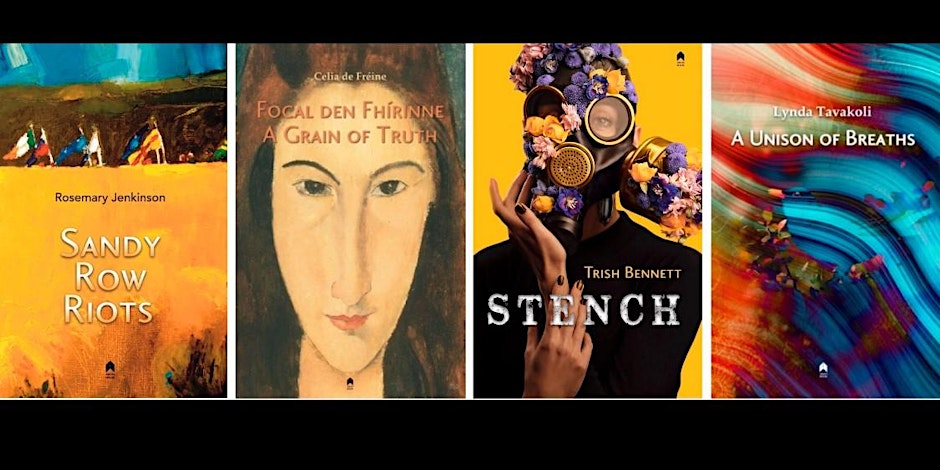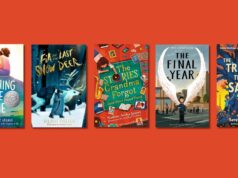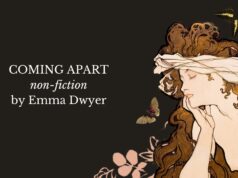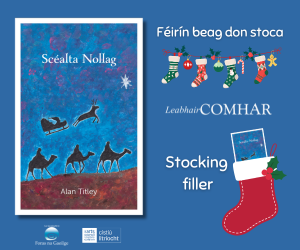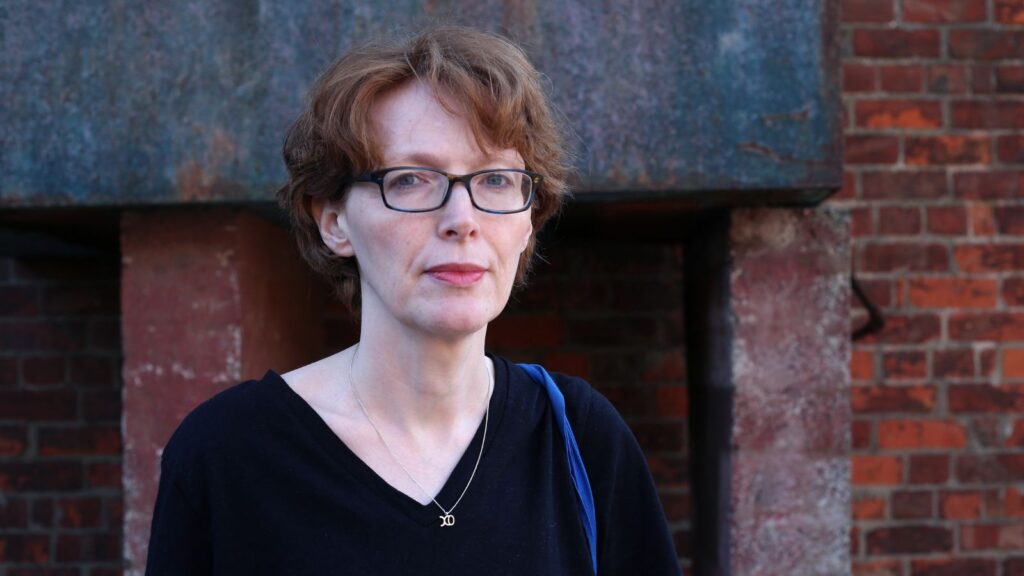
Sandy Row Riots|Rosemary Jenkinson|Arlen House
One Blind Leap from Prose to Poetry—Rosemary Jenkinson on writing her debut collection
by Rosemary Jenkinson
Why on earth would any writer make the seismic leap from fiction to poetry? Fiction writers are expected to stay in their more lucrative lane, although it has to be said that short story writers are usually the poor relatives of the prose scene. However, there are plenty of successful novelists who genre-hop to poetry. Louis de Bernières and Colm Tóibín are two notable names to have migrated.
The story of why I wrote my first collection Sandy Row Riots is, I imagine, an unusual one. Back in 2002 I wrote several poems, one of which was published in The Lonely Poets’ Guide to Belfast. I stopped writing poetry as I had this narrow belief that my talent lay in short stories and plays, and didn’t think any more about it until seven years later Solas Nua spotted my poem and included in their promo material that I was a poet. I explained to Solas Nua I wasn’t, but social media is a powerful beast and, later, a Wikipedia page appeared, describing me as ‘poet, playwright and short story writer’. On another occasion, when I visited Charlie Byrne’s Bookshop in Galway, they said, ‘Ah, yes, you’re the poet,’ and were so convinced of that, they actually stocked my short story collections in the poetry section. In a weird way, it felt like I had a poet doppelganger. And so, what else could I do to avoid looking like I was pretending to be a poet than write poetry?
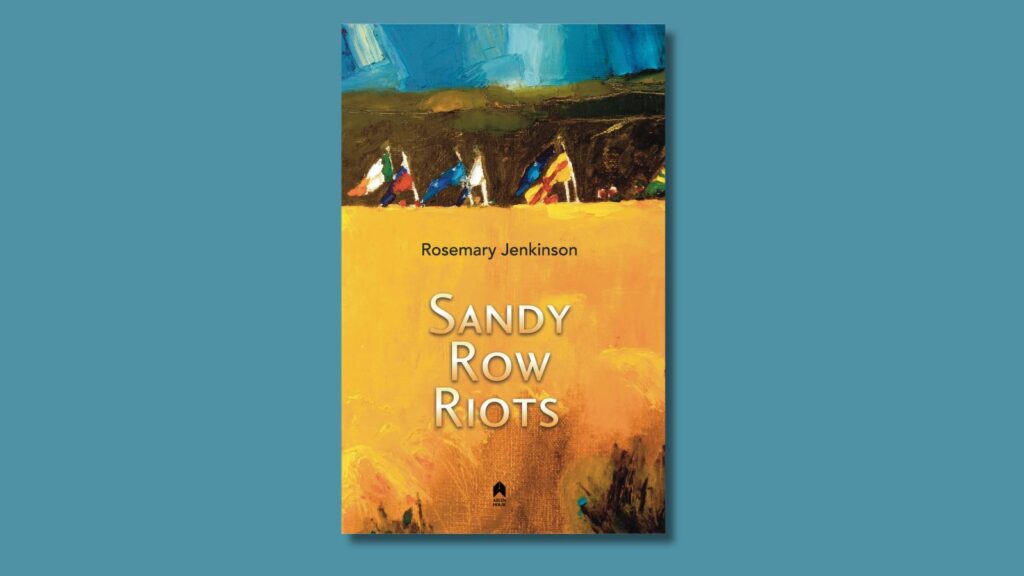
The move has required some technical adjustment – fewer sentences, more clauses. Fortunately, the metaphor quotient is high in a short story writer, meaning a more natural transition into poetry than for a novelist. Sean Ó Faoláin, in fact, talked of the ‘punch and poetry’ of the short story. I particularly appreciate the time differential with poetry – it can take at least three days to write a short story and numerous days to edit it, whereas it’s possible to complete a short poem in a day.
One distinction between fiction writers and poets is that the latter tend to be more introverted and tortured because of poetry’s more tortuous, contracted form. I’m irresistibly attracted, though, to the eccentricity that abounds in the poetry world. The French poet Gérard de Nerval used to stroll the streets of Paris by day with his pet lobster Thibault and by night slept with a noose round his neck. I’ve been contemplating taking my friend’s turtle, Sheldon, for a walk, but am not sure I could carry it off with the requisite panache.
One distinction between fiction writers and poets is that the latter tend to be more introverted and tortured because of poetry’s more tortuous, contracted form
Obviously, some poetry is comic but most goes straight for soul. In a short story, that kind of deep-vein trawl through the tragic yet glorious evanescence of life can only appear in fleeting glimpses through the narrative. A poem, by contrast, is a faster hit of emotional heroin and at its most successful marries Weltschmertz and a cerebral message in one. Robert Frost summed up poetry in a more succinct way as being about revelation.
Charles Bukowski is one of the most famous writers to straddle poetry and prose. As I worked on my collection, I kept furiously reading The Pleasures of the Damned because I wanted to emulate the ease with which Bukowski writes about sex. I adore his carnal writing and wrote my poem Bukowski Blue as a tribute. The novelist Jilly Cooper joked of writing about ‘low morals and high fences’ and I’d say my equivalent in Sandy Row Riots is ‘low morals and high peace walls’.
A vital reason for writers to change genres is to stay fresh. Writers should always evolve – look at Oscar Wilde whose transmogrifying tri-creative ascent took him from poet to novelist to playwright. In my case, I’ve traversed in the opposite direction from short story writer to playwright to poet. Literally, there’s no rhyme or reason to becoming a poet except for wanting the challenge and the kudos. Having said that, the stakes are high with attempting a new genre as it carries a risk of reputational damage. It did sometimes cross my mind that I might write as badly the Northern Irish poet, Amanda McKittrick Ros. Just to illustrate the bathos she plumbed, here’s an excerpt from her poem, ‘On visiting Westminster Abbey’:
‘Holy Moses! Have a look!
Flesh decayed in every nook!’
But my biggest worry by far was that I’d produce poetry of the generic milquetoast variety. If I ever write a poem entitled ‘Feathers’ or ‘Ribbons’, please shoot me.
I kept furiously reading The Pleasures of the Damned because I wanted to emulate the ease with which Bukowski writes about sex
Interestingly, Anne Enright talked of having ‘serious imposter syndrome’ when it came to writing poetry for the poet protagonist Phil McDaragh in her recent novel The Wren, The Wren. Her self-doubts surprised me. Writing is writing and I certainly don’t think many male authors would adopt that kind of novice mentality. Maybe the hybridity of writing poetry embedded in prose made her task harder, but whatever the case, she felt she had to ask the opinion of established poets Jessica Traynor and Jane Clarke. Personally, I’d have little interest in deferring to someone else’s judgement as I feel that self-confidence is self-fulfilling. If you don’t believe that your work is balls-to-the-wall buttfuckingly brilliant, then how will anyone else believe it?
Self-belief, of course, is not enough without studying form. My door into poetry was to read another poet’s work and rework their theme in my own way. For instance, my poem ‘Belfast’ is like the bastard child of Colette Bryce’s brilliant ‘Derry’. Similarly, ‘Westward Unbound’ is steeped in a long tradition of personal elegy that comprises Nick Laird’s sublime ‘Up Late’. My most enjoyable moments have come from a sensation of writing a poem I’ve already written; this déjà écrit feeling means there was a truth trapped deep inside me that couldn’t be accessed through prose. Sometimes poetry involves a kind of encephalic rewiring in order to access the unconscious mind.
My door into poetry was to read another poet’s work and rework their theme in my own way
A sense of place also seems more inherent in poetry than prose. I’d named my collection Sandy Row Riots only weeks before the anti-immigration riots in Belfast’s Sandy Row in August 2024. I could say the title was serendipitous in that it reflected the news, but serendipity and violence are hardly the best bedfellows. It felt positive, though, to record the burnt-out aftermath through a poem.
Overall, the most important reason for fiction writers to branch out into poetry is to resist being labelled and the paradox is that the simplest way to do this is to add more labels. Admittedly, poet, playwright, short story writer, essayist, novelist and cultural commentator is not going to fit neatly into a bio, but writers should always find a way to evade the confines of one definition. Franz Kafka once said, ‘I never wish to be easily defined. I’d rather float over other people’s minds as something strictly fluid and non-perceivable; more like a transparent, paradoxically iridescent creature than an actual person.’
As for myself, I’m just happy that I finally lived up to my Wikipedia page.
